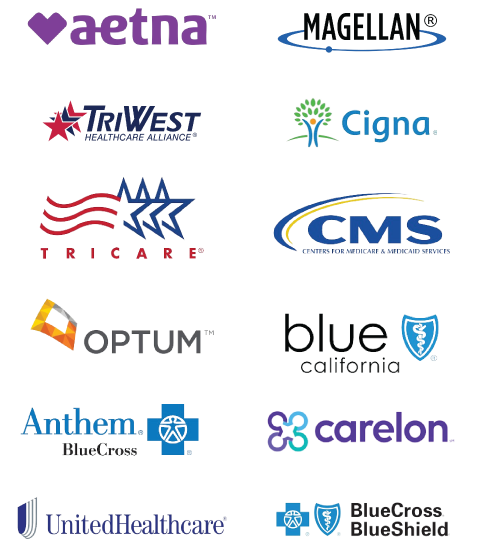
Whether you’ve decided to start attending 12-step on your own, are going because of a court order or are doing so as part of rehab, getting started can be scary. Most of us start out going to 12-step meetings to primarily listen, to get comfortable, and to decide if we fit in. Eventually, those goals have to change, and you have to share in order to participate in meetings. While sharing at a 12-step meeting like AA or NA is always a voluntary thing, sharing is part of the process.
Unfortunately, standing in front of a group of people and telling them about your mistakes is never going to be easy. It’s going to be emotional, you’re going to be nervous, and you’re going to feel judged, even if that’s completely untrue. It’s difficult to stand up and share your darkest secrets with others, even if you know many of theirs. But, it’s also an important part of the healing process to do so, and the following information might help you gain the courage to share.
Remember, Everyone is There for the Same Reasons
There are over 2 million active 12-step members. Every single one of them has been where you are now. Every single one of them is there because they were having problems with drug or alcohol abuse. Most importantly, if everyone has been where you are now, they know how you are now. They understand the anxiety, being afraid to share, nerves, shame, and guilt. They’ve battled with those emotions on their own and they won’t judge you or expect you to be confident about sharing. When you are ready to share, you are not alone.
Take Time to Meet People
The first time you walk into a 12-Step meeting, everyone is an unknown. Over time and a few meetings where you give yourself time to listen, learn the topics, and learn the people, those faces should become real. You should learn their stories, their personalities, and their problems. They should become real to you as they share their problems and their lives. Taking that time to get to know people can give you a much-needed boost of courage, because you know what those people have been through and why. They’re not random people off the street, they all have similar problems and life experiences to your own – and that should make sharing that much easier.
Of course, no one will ever have experienced life in the exact same way as you. But, once you get away from feeling like people won’t understand, that they’ll judge you, or that you have to approach sharing with fear, you’ll need less courage to actually share.

Introduce Yourself
Taking time to introduce yourself as an active part of meetings. That should involve asking questions, learning about people, actively sharing information about yourself, and stopping to eat and share social time with those people. This will help you to take the nerves off, because you won’t be a sudden new person asking for attention and space and they will be even more familiar to you.
Decide Why You’re Sharing
When you step up to share your story at 12-step meeting, it should be with a goal. Sometimes, that goal is just to take part in sharing and to feel like you belong. In other cases, it will be to actively help someone else. Figuring out why you’re sharing, which reasons you’re interested in sharing for, and what your motivations are can be extremely helpful to gaining the courage to actually share.
For example, one of the most common reasons you might have to share is that sharing gets things off your chest. You might not have told anyone before. You might be surprised at how much saying things out loud allows you to move on, to make emotional decisions, or to feel better about something. In addition, sharing that information can help others realize they aren’t alone. If you’ve had experiences like theirs or if you’ve been through a situation similar to something they’re sharing, adding to it or sharing your own perception can be extremely valuable to them. In both cases, that information can help to remind you and others why you’re in recovery and to provide ongoing motivation to staying clean and sober.
Of course, 12-step isn’t all about sharing your past. It can also be about sharing your present, your hopes for the future, the number of days you’ve been clean, how you made good decisions and made it through cravings, how you were able to achieve something because you were clean or sober. That positive sharing can help you to feel recognized, while providing others with motivation to do the same.
Start Small
You don’t have to stand up and tell your entire life history in one go. It’s important to start small, to give yourself time to get comfortable, and to share things where they are relevant and add value. If you’re nervous, sharing a few words is a lot more achievable than standing up and telling a bigger story. That’s an easier landing to sharing in your meetings and a better way to get started. Here, the best way to get your food in the door is to add small things to other people’s stories, to share that you’re proud of others or that their story means a lot to you, etc. This kind of involvement gets you started so you can learn to be comfortable, without forcing you to jump into speaking all at once.
Sharing in a 12-step group can be a lot. It can be intimidating even frightening to share things about yourself that no one knows. If you’ve never spoken in public, that will be even more intimidating. At the same time, 12 step is often very much about having space to grow, to get comfortable, and to share as part of growing. If you can work up to doing so, you’re progressing. Of course, no one will ask you to stand up and share your life story right away. They might never do so. However, growing into the process is part of the process and hopefully you can learn something as you go.
If you or you loved one need help with mental health treatment, drug rehab, or alcohol rehab Compassion Recovery Center is here to help. Contact us to ask about our mental health programs and how we can support your specific requirements as you move into treatment.






